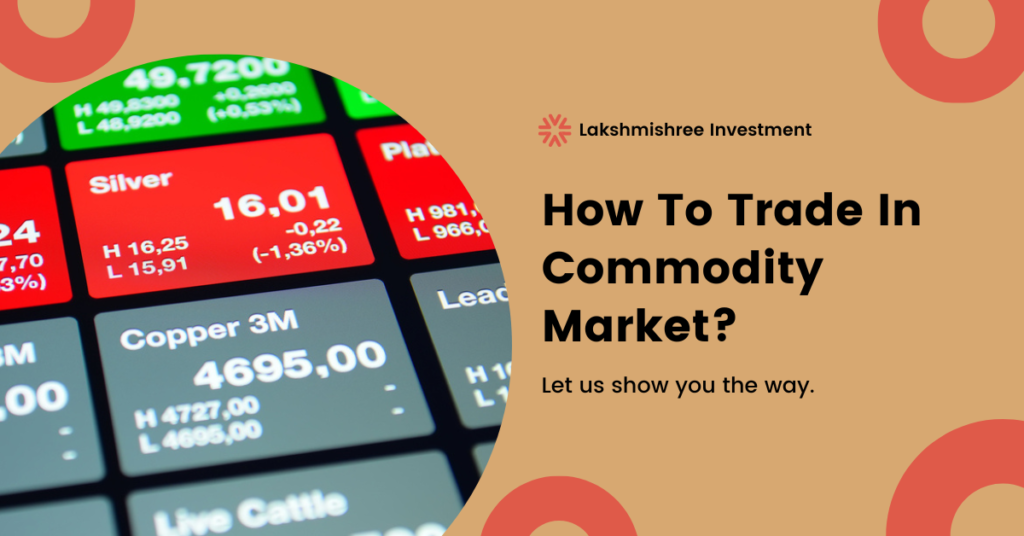
Commodity trading has been gaining traction over the years, and traders use it to diversify their portfolios. Commodity trading has its roots in ancient civilizations and in the 19th century, the first stock exchange was established. In this blog, we have described how to trade in commodity market.
Commodity trading is similar to trading in a company’s share. The commodities are bought and sold in the commodity market. Commodity trading involves speculating on the future price movements of these commodities.
Different types of commodities are traded in the market - Gold, Silver, Aluminum, Crude oil, Petroleum, Cement, etc. For commodity trading, the stock exchanges present are - MCX (Multi Commodity Exchange), the NCDEX (National Commodity and Derivatives Exchange) and the ICEX (Indian Commodity Exchange Limited).
Some features of commodity trading include:
Physical delivery: Commodity trading involves the physical delivery of the asset, unlike financial instruments like bonds and stocks. Traders can either take delivery of the physical commodity or settle the trade in cash.
High liquidity: Commodity trading has high liquidity, with multiple buyers and sellers operating in the market. When the liquidity is high, it allows the traders to enter and exit the positions with low transaction costs quickly.
Volatility: Commodity prices can be highly volatile due to various factors, such as weather conditions, geopolitical tensions, and changes in supply and demand.
Global market: As commodity trading is a world market, any event in one region can impact the price of the commodities globally.
Seasonal patterns: Some commodities, such as agricultural products, have seasonal patterns due to the timing of planting and harvesting. This can result in seasonal fluctuations in prices.
The major stock exchanges of the commodity market are:
All these exchanges are regulated by the Securities Exchange Board of India (SEBI). The commodity markets facilitate the exchange of both physical goods and derivative contracts.
The physical exchange is done under commodity brokers and institutional investors, who aim to gain through resale of the products in the retail sectors. In contrast, the derivative contract does not require a physical store of the goods purchased as they can be traded digitally through contracts.
Commodities market investments can also be made through futures or options contracts.
Future derivative trading is common in the commodity market. Here the sellers sign a contract with buyers to purchase an agreed quantity at a given price. If the market falls, the sellers will profit; if it rises, the buyers will profit. If an exchange supervises this trade, it is a future derivative contract.
In 2017 SEBI (Securities Exchange Board of India) announced that options trading could be practised when investing in commodities. In this, the traders have a right, but it is not an obligation to buy/sell a commodity derivative at a fixed price.
Some of the factors that affect the prices of the commodities are -
Some significant differences between equity and commodity trading are:
Commodity trading can help traders get a high profit, but it is risky, too, as it involves high leverage, and the traders need to understand its various concepts. It is advised that proper research must be done, and the traders need to have patience. Our previous blog discussed the types of commodities and how a trader could start commodity trading.
To trade in commodity market, you need a trading and Demat account, which can be opened easily with us at Lakshmishree Investments.
There are various types of commodities which are traded in the commodity market. Some of these are - Gold, Silver, Cement, Spices, Copper, Aluminium, Crude, Petroleum products, etc.
Commodity trading helps traders diversify their portfolios and also provides a hedge against inflation. Commodity traders can also book significant profits if their market predictions are correct.
The commodity market has two kinds of individuals the hedgers and the speculators. The hedgers are the producers, and they aim to reduce the risk, while speculators are those whose aim is to generate profits in the short term.
